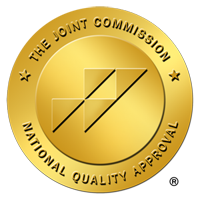Despite scientific progress, there remains a pervasive stigma surrounding addiction, that of addiction being:
- A personal choice
- Moral failing
- Lack of willpower
These are all completely false, and the only way to ensure that everyone understands why they are false is to talk about these addiction stigmas.
September is traditionally National Addiction Awareness Month, when people have a chance to increase their awareness or knowledge about addiction, with campaigns and activities throughout the month designed to facilitate talking about addiction stigma, the complexity of the condition, and treatment options.
In fact, reducing the stigma around addiction is a primary purpose; this helps individuals get the treatment they need without fear of discrimination or judgment. That said, you don’t have to wait until September to start talking about addiction stigma.
How Stigmas Hurt Recovery
When stigmas exist, they can cause difficult interactions with friends, family, and even strangers. Someone who struggles with addiction might feel discriminated against or experience prejudice, all of which can lead to negative internalization and self-stigma.
When someone continually experiences outdated stereotypes or an incorrect assumption that their respective addiction is because of a moral failing, they might be more likely to believe that they are a failure, morally inept and that there is no point in getting help.
The result is a decline in self-esteem, motivation, and self-efficacy. This can have a detrimental role in someone’s ability to recover successfully, and that is why talking about addiction stigma is imperative for the long-term health and recovery of anyone who is struggling.
The Importance of Talking About Addiction Stigma
Talking about addiction stigma, education, and treatment options helps to create a supportive and compassionate environment for individuals who are directly affected by addiction and those who are indirectly affected by it.
When people talk more about how addiction really works and what type of resources are needed for recovery, it helps everyone receive the ongoing support they need and get treatment for things like mental health, co-occurring addictions, and relapse recovery.
It is imperative to let people know that recovery is possible and that those who are currently in recovery deserve ongoing support, respect, and encouragement.
Overcoming Stereotypes
Thanks in large part to outdated representations on television, in movies, or other social media, there is a standard image of a drug addict as someone who might be shambling, homeless, and ready to steal from their friends and family at any moment.
Unfortunately, without talking about addiction stigma like these outdated images, people might hold on to them, so any interactions they have with someone who is brave enough to admit that they struggle with addiction can quickly turn sour.
Education helps people better understand what addiction looks like, how it can impact individuals, and, more importantly, that it doesn’t fit a stereotypical mold.
Providing Education
The more we are open about the stigmas surrounding addiction, whether they come from within or without, the more we can educate ourselves and others.
This extends to education about things like:
- The causes of addiction
- How addiction works
- How addiction changes the brain
- What a relapse looks like
- How to communicate with someone who has an addiction
With the right level of family therapy, for example, those closest to you can learn more about providing support without enabling or the changes that addiction causes that might better explain behaviors from the past.
Helping with Treatment
The more we provide education and openly talk about the stigmas associated with addiction, the more comfortable people who have an addiction will feel getting the help they need.
Whether because of incorrect information, outdated stereotypes, or feelings of self-stigmatization, those who struggle with addiction may not always reach out for the help they need or admit what they are going through.
Today, over twenty million people have an addiction, but only 23 percent of those get help.
Getting Treatment with American Detox
Talking about addiction stigma can help people overcome a sense of shame. We know how hard it is to overcome stigma from others or a sense of self-stigmatization, and that is why our Treatment Center provides open communication, support group meetings, and access to evidence-based practices that are honest about addiction, how it happens, what the causes are, and why it’s important to speak openly about it with others.
With American Detox, we provide respect, support, and encouragement to all our clients. To best support you and your recovery, our goal is to give you the tools you need to talk about stigma and overcome any feelings of self stigmatization or social stigma that are impeding your progress so that you can live a successful, happy life.
Reach out to us today for more information on talking about addiction stigma or getting help for addiction.
Frequently Asked Questions
What is the main stigma behind addiction?
An outdated stigma remains that addiction is a personal choice, more of a reflection of an individual’s lack of willpower than anything else or some form of moral failing. Science has proven that this is completely false, and addiction is a mental health condition, one that changes the brain to the point that an individual needs help in their recovery.
How does stigma affect recovery?
When people have outdated stigmas about addiction centered on things like outdated stereotypes, it can lead to discrimination and prejudice. When individuals with addiction experience this kind of discrimination, it can lead to internalized stigma or self-stigmatization.
If an individual experiences a lot of stigmas, it can result in them believing these false or negative ideas, these outdated stereotypes. This might stop someone with an addiction from asking their family for help or talking about their struggles at work.
What is self-stigmatization?
Self-stigmatization refers to interpretations that someone with an addiction feels because of their behaviors or experiences. Someone who has struggled with addiction might feel like a failure, as though they haven’t lived up to what their life could be and that some of their behaviors are shameful. This can lead to individuals stigmatizing themselves because of these feelings.
Can therapy help me overcome the stigma of addiction?
Overcoming these feelings of stigma or self-stigma is only achievable when they are openly discussed, which is why support groups and therapy can be instrumental in recovery; support groups provide a place where people can come together and be open about how they feel, whether they feel shame or like a failure.
Support groups and group therapy sessions can provide a chance to recognize that these feelings are not a definition of who you are. They are also temporary and not necessarily grounded in reality, something that CBT and other evidence-based practices can help you understand.
What is the most common support group for addicts?
Alcoholics Anonymous AA and Narcotics Anonymous, or NA, are the most well-known and available form of support groups for those struggling with addiction. Alcoholics Anonymous is only there for people with problems related to alcohol, but Narcotics Anonymous is there for people with other substance abuse problems of any kind.
SMART Recovery is a newer alternative as well. This offers similar support to Narcotics Anonymous or alcoholics anonymous but without ties to Christianity and a belief in a higher power.


